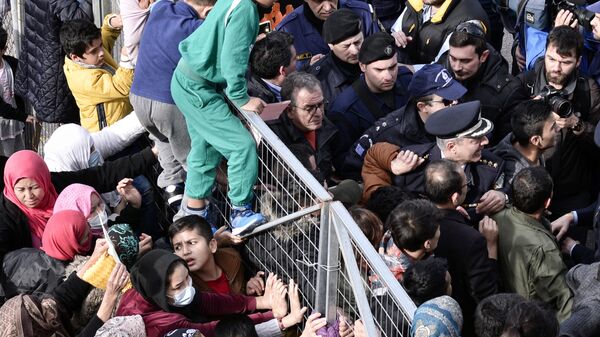The Commission agreed, September 2015 to relocate 160,000 migrants from Greece and Italy to other EU member states, according to a quota system, based on population and GDP, among other measures. Although the figure was revised downwards, to 98,255, only 16,163 have so far been relocated (May 12) under the scheme.
"We have reached more than 18,000 relocations so far; this shows what political will and determination can achieve." https://t.co/UnJl4tQfQx pic.twitter.com/gpyhPeGi7C
— European Commission (@EU_Commission) 16 May 2017
It also agreed the EU-Turkey migrant deal, which proposed relocating "irregular migrants" — those not granted or not applying for asylum — in Greece back to Turkey in return — on a one-for-one basis — for Syrian refugees in Turkey being relocated to other EU member states. So far, 5,695 Syrian refugees have now been provided with safe and legal passage to Europe.
However, the Commission has hit out at the slow pace of relocation by some EU member states, with Poland and Hungary being singled out for refusing to take one.
"In this respect, the recommendations in today's report focus mainly on those member states that have not yet implemented the Council Decisions, notably calling on Hungary and Poland to start pledging and relocating immediately," the Commission said in a statement.
It said that although most member states are now active and pledging and relocating regularly, Hungary, Poland and Austria remain the only ones to have not relocated a single person. Austria has however formally pledged to relocate 50 persons from Italy, a decision which the Commission has welcomed.
"The results so far prove that if there is will and determination of member states, relocation can work. The success of the relocation scheme cannot depend only on just a few. Solidarity in legal, political and moral terms is not susceptible to different interpretations," said EU Commissioner for Migration, Home Affairs and Citizenship Dimitris Avramopoulos.
It cannot be that while majority of Member States make efforts on #relocation, others continue to show no solidarity https://t.co/qb9KqYSfhe
— DimitrisAvramopoulos (@Avramopoulos) 16 May 2017
"I call on those member states who have systematically failed to deliver on their obligations to start doing so at once. The overall figures on resettlement show what strengthened EU-level cooperation and coordination can do in practice, and it is high time we achieved the same for relocation."
Rule of Law
Relations between Brussels and the government sin Warsaw and Budapest are already under strain over other matters.
Pressure is growing to put sanctions on Poland over changes to its constitutional court, which the Commission and MEPs say are in contravention of the EU's Rule of Law.
MEPs say there is a "clear risk of a serious breach" of EU values by Hungary #EPlenary #CEU https://t.co/uMDWdWVLlJ pic.twitter.com/fMpXNCIfuo
— European Parliament (@Europarl_EN) 17 May 2017
Meanwhile, MEPs voted, May 17 to impose sanctions after its parliament passed a motion effectively preventing the Central European University (CEU) — founded by Hungarian-born billionaire George Soros — from operating as an educational institution in the country and cracked down on foreign NGOs.


